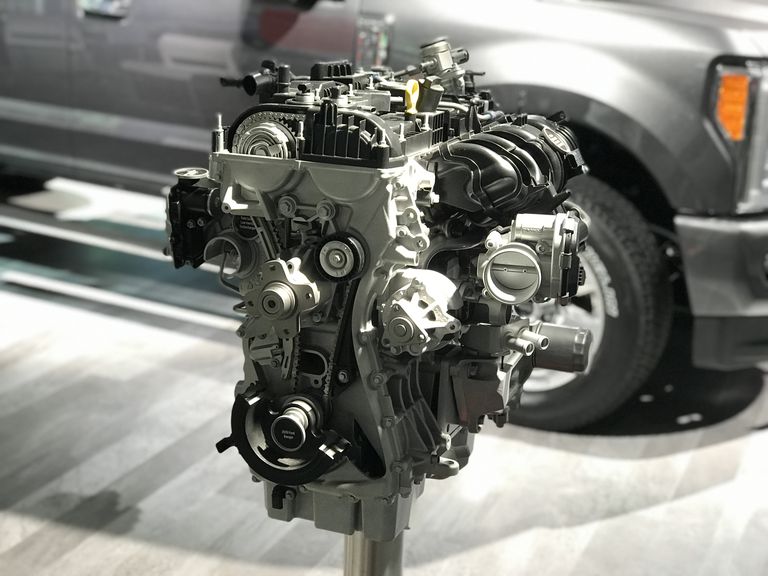The 2.2 Ford Ranger Engine: Ideal for Towing, Off-Roading, and Everyday Use
The 2.2 Ford Ranger Engine: Ideal for Towing, Off-Roading, and Everyday Use
Blog Article
What Makes a Car Engine Run Efficiently: Top Tips for Optimal Treatment
The smooth operation of a cars and truck engine is fundamental to both performance and durability, making ideal treatment a necessary duty for vehicle proprietors. What specific steps should you focus on to guarantee your engine remains in peak condition?
Regular Oil Modifications
Among the most crucial aspects of vehicle maintenance is ensuring your engine gets normal oil changes. Engine oil lubricates inner elements, decreases friction, and aids maintain optimal operating temperatures. Over time, oil deteriorates as a result of warm, impurities, and the natural byproducts of burning, resulting in reduced performance and prospective engine damages.
The majority of makers recommend transforming the oil every 5,000 to 7,500 miles, but this period can vary based on driving problems and oil type. Artificial oils may enable for longer intervals in between modifications. Normal oil modifications not just enhance engine efficiency yet likewise enhance gas performance, as tidy oil promotes smoother operation.
Neglecting oil adjustments can lead to sludge build-up, which harms flow and can cause serious engine issues. It is essential to examine oil levels consistently and check for any type of uncommon adjustments in color or uniformity, which might show contamination or deterioration.

Keeping Coolant Levels
Keeping proper coolant degrees is important for preventing engine overheating and making certain ideal efficiency. The coolant, generally a combination of water and antifreeze, distributes through the engine, taking in warmth and avoiding thermal stress and anxiety. Inadequate coolant can result in raised engine temperature levels, which may trigger severe damage or also total engine failing.
To maintain ideal coolant degrees, on a regular basis inspect the coolant storage tank, typically situated in the engine bay. Ensure the coolant is filled up to the suggested mark, as suggested in your automobile's proprietor guidebook. It is advisable to check the degrees at the very least when a month or soon journeys, especially during extreme weather.
If you see that the coolant degree is continually reduced, there may be a leakage in the air conditioning system, which need to be addressed quickly to stop additional issues. 2.2 ford ranger engine. In addition, flushing the coolant system every 2 to 3 years can help remove any kind of accumulated debris and make sure effective warmth exchange
Monitoring Air Filters

It is advised recommended you read to examine the air filter every 12,000 to 15,000 miles, or more frequently if driving in dirty or negative conditions. A straightforward aesthetic evaluation can frequently reveal whether the filter is dirty or harmed. If the filter shows up stained or has noticeable dust buildup, it must be changed promptly.
Making use of a top quality air filter made for your particular automobile model can further boost engine performance. Additionally, some automobiles may take advantage of multiple-use filters that can be cleaned up and reinstalled, providing a cost-efficient and environmentally friendly choice.
Inspecting Spark Plugs
Glow plugs are vital parts of a car's ignition system, directly affecting engine efficiency and performance. They produce the trigger that fires up the air-fuel combination in the combustion chamber, facilitating the engine's power generation. Routine examination of ignition system is crucial for preserving ideal engine function and protecting against possible concerns.
Throughout an inspection, look for indicators of wear or damages, such as fractures, carbon accumulation, or extreme space widening. A healthy ignition system typically exhibits a brown or tan shade. Dark residue or oil deposits can indicate inappropriate burning, while a white or blistered look may suggest getting too hot. my link Both problems need immediate attention to avoid more engine damages.
It's recommended to check ignition system every 30,000 miles, or as suggested in your vehicle's proprietor guidebook. Furthermore, take into consideration replacing them according to the supplier's guidelines, as old or used trigger plugs can lead to misfires, minimized gas effectiveness, and raised emissions.
Tracking Tire Stress
Under-inflated tires can lead to decreased gas performance, enhanced the original source tire wear, and jeopardized handling. Normal monitoring of tire stress is important for optimum lorry operation.
Tire pressure ought to be inspected at the very least as soon as a month and before lengthy trips. Use a trustworthy tire stress scale to gauge the stress when the tires are cool, preferably prior to the automobile has actually been driven for a minimum of 3 hours. Describe the automobile's owner handbook or the placard located on the chauffeur's side door jamb for the maker's advised stress degrees.
It is very important to keep in mind that tire pressure can fluctuate with changes in temperature level; a decline of 10 ° F can cause a 1-2 psi decline in stress. Furthermore, visually examine tires for any indicators of wear or damages during your monitoring routine. Keeping appropriate tire stress not only enhances lorry safety and security however also boosts fuel efficiency and lengthens tire life, inevitably adding to a smoother engine performance.
Verdict
In final thought, maintaining a car engine's smooth procedure needs persistent focus to a number of key variables. Regular oil adjustments, appropriate coolant degrees, clean air filters, well-maintained trigger plugs, and ideal tire pressure jointly contribute to boosted performance and long life. Sticking to these maintenance techniques not only boosts fuel efficiency however also advertises a safer driving experience. Inevitably, a proactive strategy to engine care is necessary for guaranteeing reliability and performance with time. 2.2 ford ranger engine.
One of the most vital aspects of cars and truck upkeep is ensuring your engine gets normal oil changes. Engine oil lubes inner elements, lowers friction, and helps keep optimum operating temperatures. Routine oil modifications not just boost engine efficiency yet also enhance fuel performance, as tidy oil advertises smoother procedure.
Insufficient coolant can lead to enhanced engine temperature levels, which might create extreme damage or even overall engine failing.

Report this page